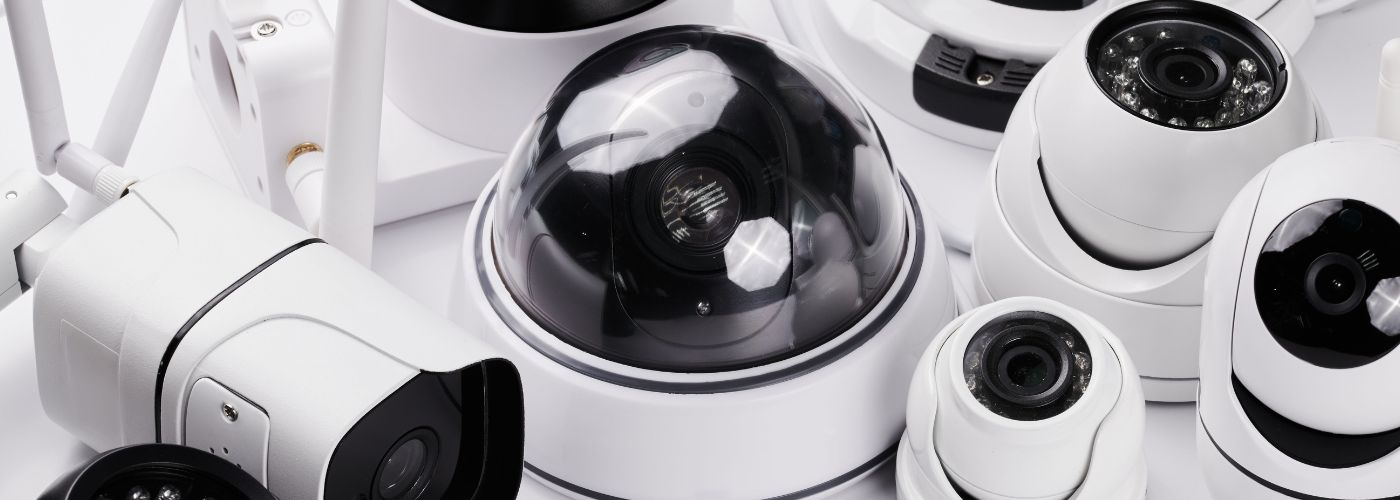In the age of smart homes and interconnected devices, security systems have become an essential tool in safeguarding our homes and loved ones. The debate between wired and wireless security systems has been ongoing. Join us on this journey as we explore the pros and cons between wired vs wireless security systems!
Best Brands For Wired & Wireless Security Systems
When it comes to top-notch security systems, Control4 cameras stands out as a brand that excels in both wired and wireless solutions.
Known for its innovative automation features, Control4 offers seamless integration with various devices, allowing users to monitor and control their security system remotely.
With advanced technology like facial recognition and smart sensors, Control4 ensures maximum protection for your home or business.
Control4 also excels in providing high-quality video footage with clear images and night vision capabilities, ensuring that any suspicious activity is captured accurately.
In addition to its security features, Control4 cameras are also designed to be aesthetically pleasing and blend seamlessly into any environment. This brand makes it a option for wired vs wireless security systems.
Reliability and Signal Strength For Wired vs Wireless Security Systems
When it comes to reliability and signal strength, wired security systems have long been touted as the more dependable option. With a direct physical connection to power and communication lines, wired systems are less susceptible to interference or interruptions in signal transmission.
This makes them a favored choice for those seeking maximum peace of mind when it comes to home security.
On the other hand, wireless security systems have made significant advancements in recent years, offering comparable reliability and signal strength to their wired counterparts. With improved technology and stronger encryption protocols, wireless systems can now provide reliable monitoring and protection for homes and businesses.
Additionally, the flexibility and ease of installation of wireless systems make them a convenient choice for many users who value convenience without compromising on performance.
While both wired and wireless security systems have their strengths when it comes to reliability and signal strength, it ultimately comes down to individual needs and preferences.
Whether you prioritize a hardwired connection for maximum stability or opt for the flexibility of a wireless system with enhanced technology features, both options offer great solutions for the safety of your property.
Cost Analysis For Wired & Wireless Security Systems
When considering the cost of security systems, it’s important to analyze both wired and wireless options thoroughly.
Wired security systems typically cost less upfront due to the lower equipment costs and installation fees compared to wireless systems. However, it’s essential to factor in potential additional costs such as maintenance and repairs over time for wired systems which may offset the initial savings.
On the other hand, wireless security systems offer more flexibility and scalability without the need for extensive wiring, which can save on installation costs in certain scenarios.
Additionally, advancements in technology have made wireless systems more reliable and secure than ever before, providing a long-term cost-effective solution for many homeowners and businesses alike.
Ultimately, when evaluating wired versus wireless security systems from a cost perspective, it’s crucial to consider both short-term savings and long-term benefits to make an informed decision that aligns with your budget and security needs.
Maintenance Requirements For Wired vs Wireless Security Systems
Maintenance for both wired and wireless security systems is crucial for ensuring optimal performance and reliability.
Wired systems require regular checks on the physical connections to prevent issues such as loose wiring or corrosion.
On the other hand, wireless security systems are more convenient but need consistent monitoring of battery levels and signal strength to avoid any disruptions in coverage.
Regularly updating the firmware of both wired and wireless security systems is essential in ensuring protection against emerging cyber threats.
Additionally, cleaning the sensors and cameras regularly can enhance the overall functionality and effectiveness of the system, providing peace of mind for homeowners or businesses alike.
By staying proactive with maintenance tasks, users can maximize the longevity and efficiency of their security systems while minimizing the risk of potential vulnerabilities.
Pros & Cons of Wireless Systems
One of the biggest advantages of wireless systems is their flexibility and convenience. With no need for cables, these systems offer easy installation and can be easily moved or expanded as needed.
This makes them ideal for situations where you need to quickly set up a network or make changes without a lot of hassle. Additionally, wireless systems allow for greater mobility, giving users the freedom to move around without being tethered to a specific location!
On the flip side, one major drawback of wireless systems is their susceptibility to interference and signal loss. Factors such as distance from the router, physical obstructions, and other electronic devices can all affect the performance.
Security is another concern with wireless systems, as they are more vulnerable to hacking and unauthorized access compared to wired networks.
It’s important for users to implement strong security measures to protect their data and privacy when using wireless systems.
Pros & Cons of Wired Systems
When it comes to wireless systems, there are tons of pros and cons that you should be aware about. The first benefit of wired systems is that they are typically a lot cheaper than wireless systems to due their wired design.
The wires also serve as a direct communication line between the camera and the hard drive to film, record, and store footage. Additionally, wired systems typically offer faster data transfer speeds compared to wireless alternatives, making them ideal for tasks that require high bandwidth.
While the wired design does come with this benefit, there are some cons that you should be aware of. The first con is that these wires are susceptible to damage from external factors like the weather, rust, dirt, and even potential cutting from any would-be thief.
It’s extremely important to maintain the quality of the camera wires so they’re not exposed to the general public.
Overall, when choosing between wired vs wireless security systems, it’s best to consider all of your options because, ultimately, that’s what will determine your security automation system. Nonetheless, you can go wrong choosing between wired vs wireless security systems.



More to Read
Top Smart Locks For Homes
Are you still using a standard key to lock your door? It might be time
Jul
How To Keep Your Home Safe During Traveling
Have you ever returned from a dream vacation only to discover your home has been
Jun
Mistakes To Avoid With Smart Home Theater Installations
Have you ever felt overwhelmed by the options when creating your perfect home theater? You’re
May